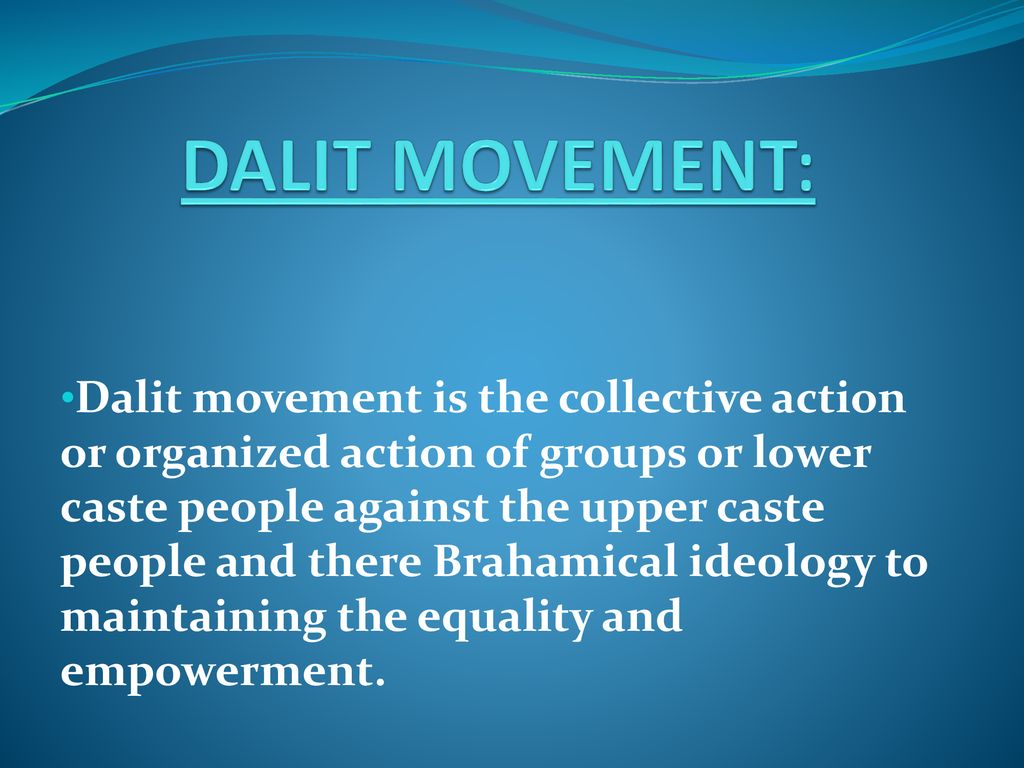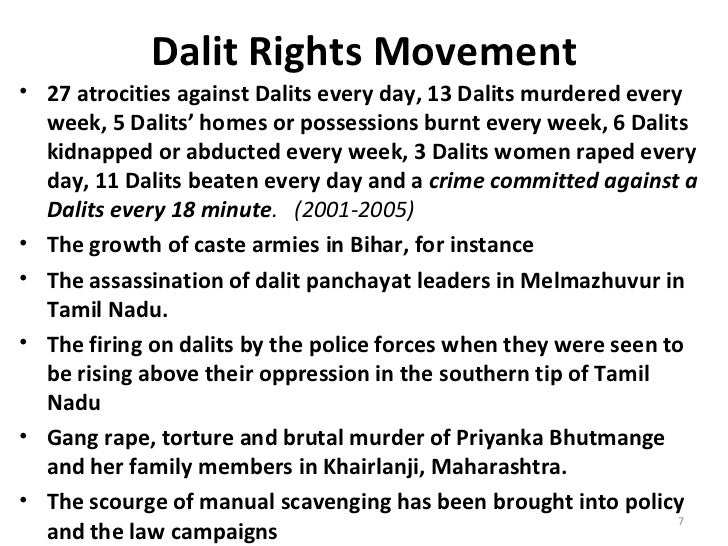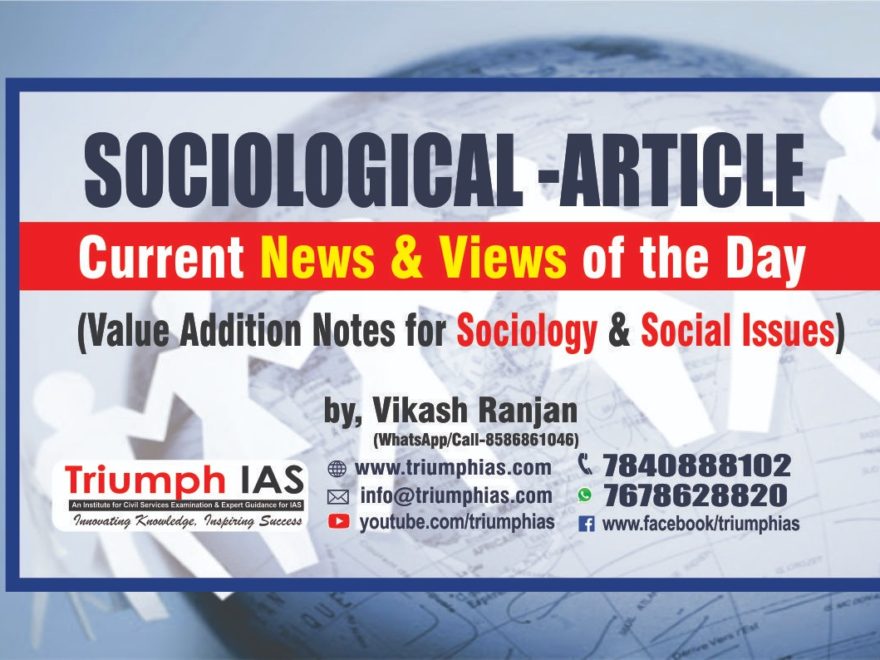Relevance: Mains: G.S paper I: Society and social issues: Social Empowerment & Sociology: (v) Social Movements in Modern India: Backward classes & Dalit movement.

Context:
• The pandemic is forcing us to understand the changing nature of society. In north India, specifically, it has also reshaped the discourse on marginalisation.
• Dalit issues are part of this discourse but are submerged in the broader discussions on economic vulnerabilities highlighted by COVID-19.
• This pandemic has brought about two important shifts in the political discourse on the marginalised.
• As the lockdown caused untold suffering to poor, migrant labourers, it brought them from the margins to the centre of deliberations.
• Second, discussions on the space for the marginalised in the public health system and their safety are in focus.
• However, the concerns of Dalits remain hidden under the broader categories of poor, vulnerable, marginal, etc.

Changing vocabulary:
• In contemporary debates, there is a reappearance of class-based vocabulary.
• Caste-based issues have either become invisible or are only visible as part of the wider discourse.
• Leaders such as Bahujan Samaj Party supremo Mayawati and Bhim Army chief Chandrashekhar Azad have not been able to engage effectively with these new shifts.
• They have not been able to carve out a location in these new debates for their own politics.
• They have to reorient their exclusively caste-based language and reshape their political discourse to be in tune with the times.
• There are a large number of Scheduled Castes and Scheduled Tribes among the migrant labourers.
• But Dalit leaders in north India have not been able to represent their concerns.
• It is possible that these shifts in political debates may continue in the post-pandemic phase at least for a few years as vulnerabilities of the marginalised will increase.
Key challenges:
• The Dalit movement in north India is habituated in using caste-based binaries in its mobilisational language but has failed to respond to the changing political diction.
• In fact, leaders have not changed their political diction for 30 years, since the time of the Kanshi Ram-led Bahujan movement.
• The movement is facing a crisis of agendas and social programmes.
• The constant repetition of unfulfilled claims and commitments and slogans and promises create disillusionment among a section of their support base.
• Another issue is that the Dalit movement in north India is grappling with a leadership crisis.
• In States such as U.P., Bihar, Punjab and Rajasthan, Dalit assertions are mostly centred around the electoral politics of Dalit-Bahujan political groups and parties.
• Even alternative social movements led by Jignesh Mevani and Mr. Azad seem to be caught in the logic of electoral politics.
Leadership crisis:
• During the Bahujan movement in the 1990s, the idea was that the movement and the party could facilitate each other.
• But the BSP, which emerged from the Bahujan social movement, developed gradually as a party structured like a pyramid.
• Under Ms. Mayawati, it has stopped its reciprocal relationship with the Dalit movement.
• In the BSP, the emergence of political leaders of various Dalit-Bahujan castes at different levels became frozen.
• This caused erosion in the broader social base and ultimately weakened the Dalit movement.
• The Dalit movement is constantly facing new challenges but its leaders are not able to change their strategies and grammar of politics to respond to them.
• Under the influences of the Ambedkarite ideology and the Dalit-Bahujan movements, an assertive and politically aware Dalit consciousness was being formed among a section of Dalit groups.
• In the meantime, interventions by Hindutva leaders among Dalits mobilised a section of the most marginalised Dalits under the Hindutva flag.
• Now the pandemic has posed a new challenge for the Dalit movement.
Conclusion:

• Caste-based identities formed the ideological resource base, but now concerns have gone beyond caste and religion, thus posing a different challenge.
• The challenge may be temporary but it may lead to a paradigm shift for Dalit politics.
• The Dalit movement has to evolve new social strategies for its expansion in order to keep up with the changing times.
For more such notes, Articles, News & Views Join our Telegram Channel.
Click the link below to see the details about the UPSC –Civils courses offered by Triumph IAS. https://triumphias.com/pages-all-courses.php

